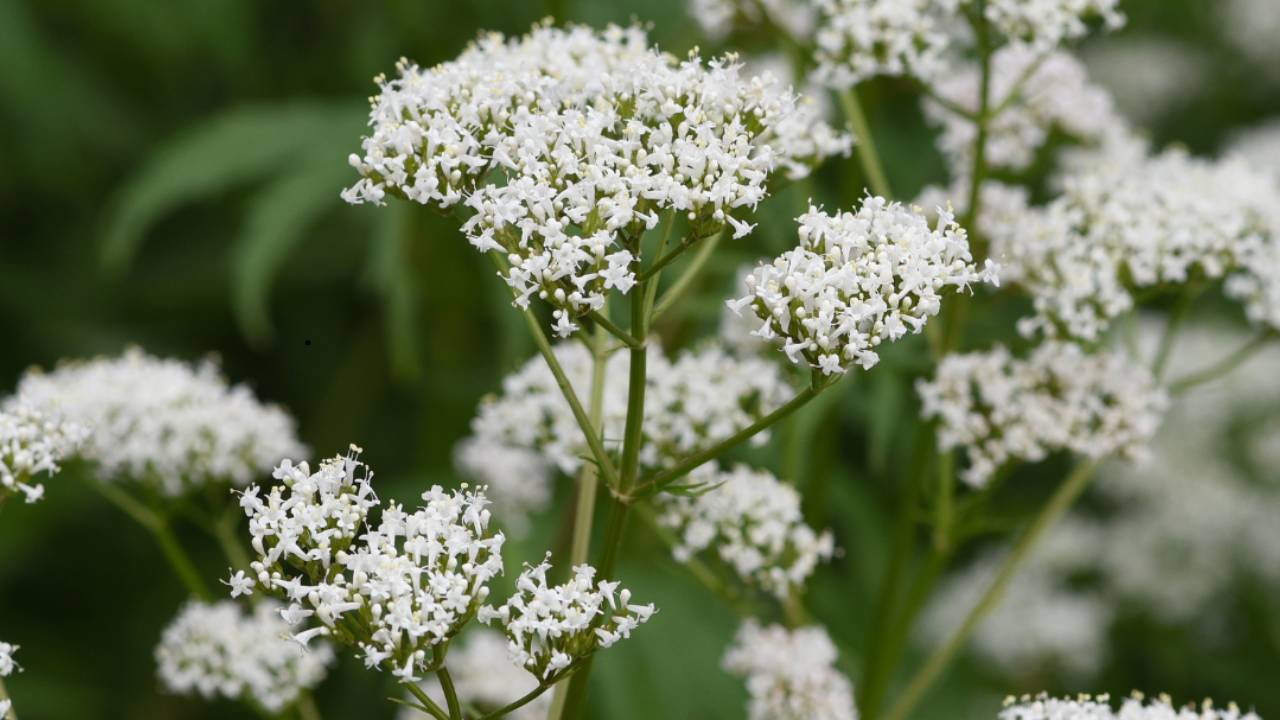
9 Herbs For Better Sleep: Effective Herbal Sleep Aids
Struggling with sleep problems can take a toll on your mental and physical health. And it’s becoming an ever-increasing problem in modern society. When you’re dealing with trouble falling asleep, staying asleep, or simply waking up without feeling rested, incorporating these 9 herbs for better sleep into your evening routine can be a game-changer. Many natural sleep aids have been used for centuries to help promote better sleep without the harsh side effects of prescription medications.
This blog post includes herbs like valerian root, lemon balm, chamomile, lavender, ashwagandha, California poppy, hops, passionflower, and wild lettuce. We’ll also cover ways to use these herbs and some changes you may be able to make to improve the quality and quantity of your sleep.
Valerian Root: A Time-Tested Sleep Aid
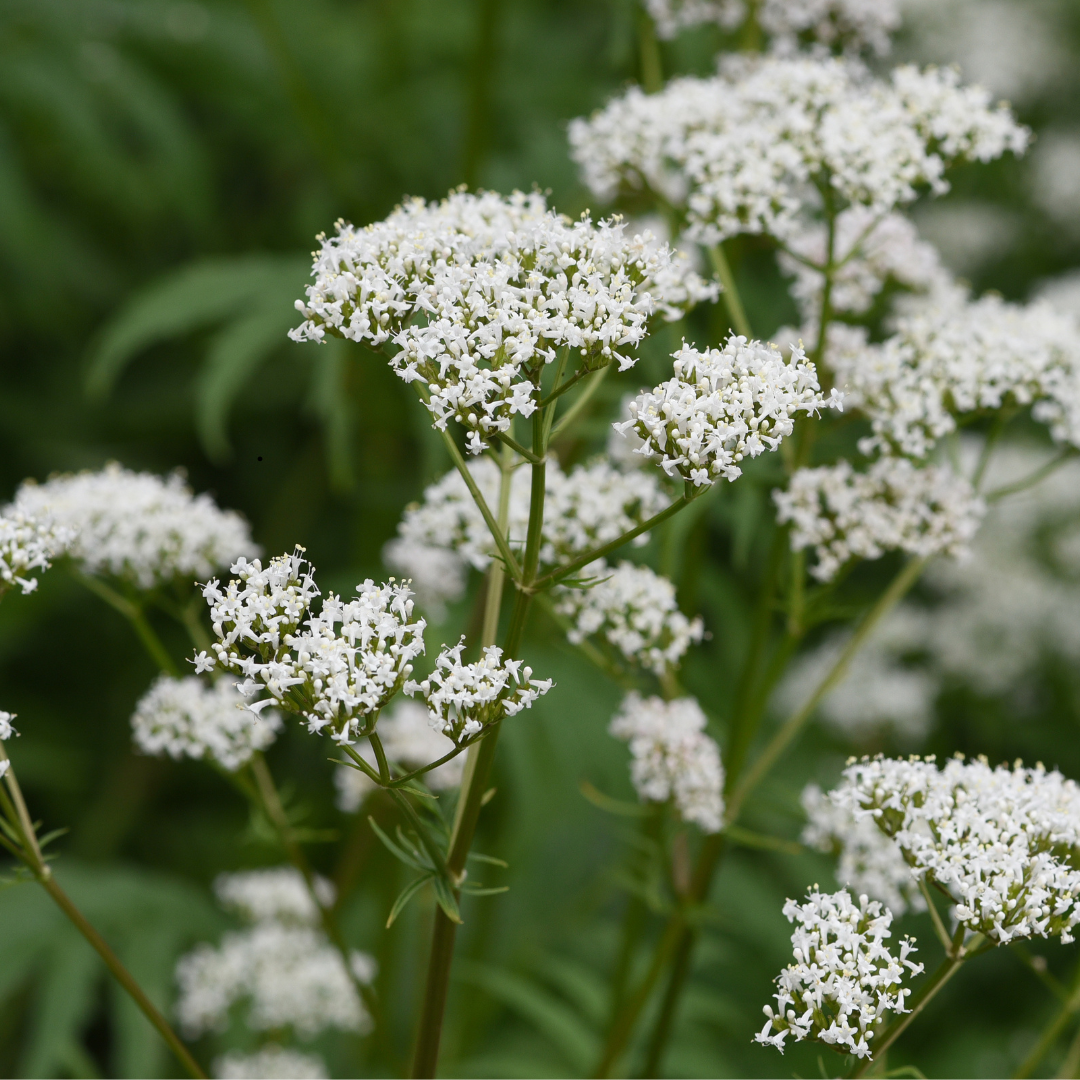
Valerian root (Valeriana officinalis) is one of the most well-known herbal sleep aids and is commonly used to address sleep disturbances and improve sleep quality. This medicinal herb is rich in compounds like valerenic acid, which interact with GABA receptors in the brain to promote relaxation and help reduce anxiety. Valerian root has a calming effect on the central nervous system, making it a great choice for those struggling with anxiety and insomnia.
Studies have shown that valerian root may be particularly effective in promoting restful sleep for individuals with sleep problems caused by stress or an overactive mind. Unlike many prescription medications, valerian root has minimal side effects and is well-tolerated by most people.
-
How to Use Valerian Root: It can be taken in capsule form, as a tincture, or in a tea blend. For the best results, take valerian about 30 to 60 minutes before bedtime to help ease you into deep sleep. If you choose to add this herb to a tea blend, be aware that it has a very strong flavor and it should be blended with more flavorful herbs listed in this post.
-
Lifestyle Tip: Try turning off electronics at least an hour before bed to avoid blue light, which can interfere with your body’s circadian rhythm.
-
Contraindications: In herbal medicine, the constitution of a person is strongly considered when a practitioner is suggesting an herbal protocol. There are many things a practitioner will consider, one of which being the person’s personality and temperament. If a person is quick to anger or “hot-headed”, Valerian should be avoided. In these cases, Valerian could actually create an increase in that anger. For these people, Passionflower should be looked into instead.
Lemon Balm: Stress Relief for a Restful Night
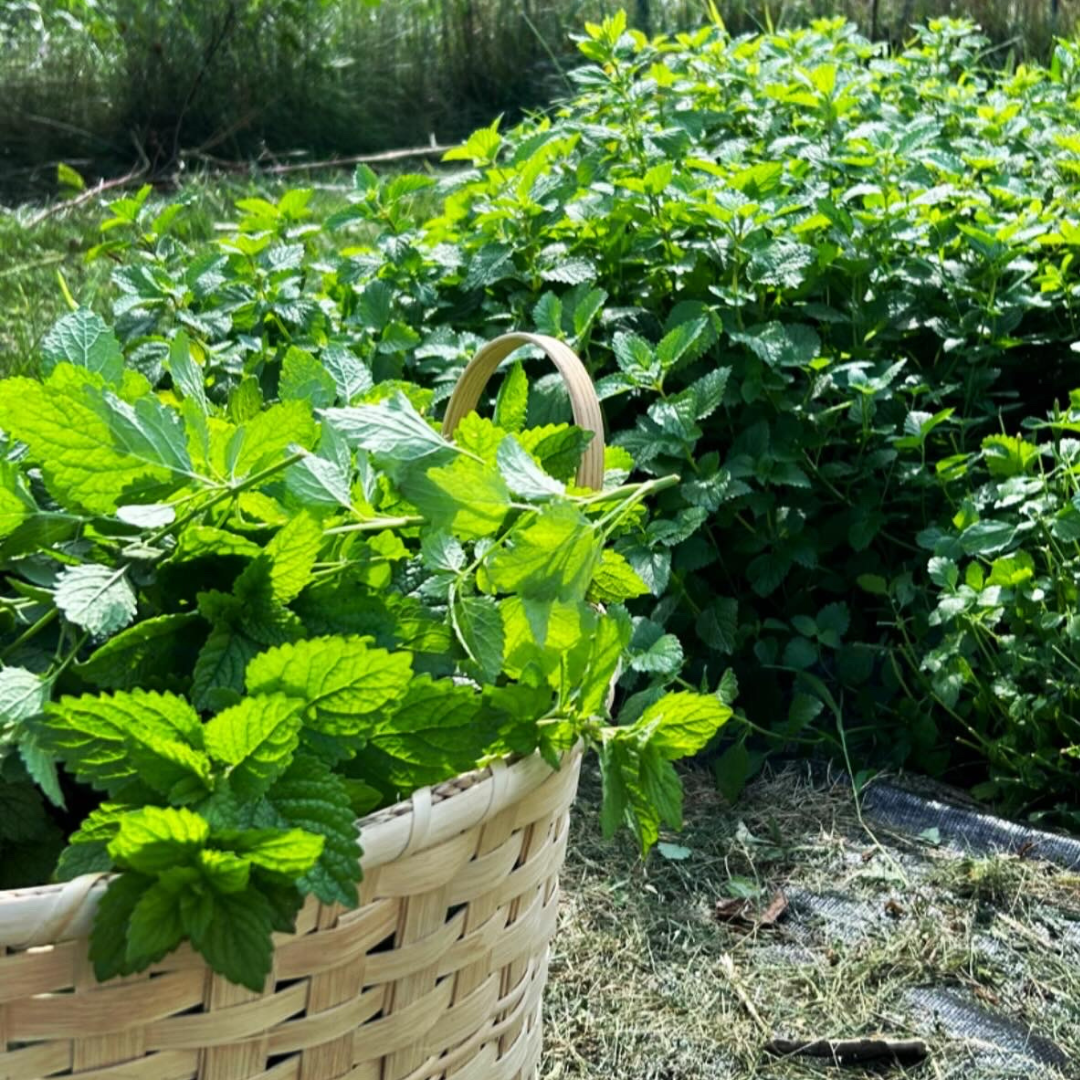
Lemon balm (Melissa officinalis), another popular sleep herb from the mint family, has been shown to reduce anxiety, ease stress, and promote restful sleep. This herb has a long history of use in herbal medicine for helping with relief from sleep disorders, and it’s often used in combination with other herbal remedies such as valerian root or lavender. It is particularly beneficial for individuals who have trouble sleeping due to stress or emotional turmoil.
-
How to Use Lemon Balm: Lemon balm can be taken in capsule form, as a tincture, but is best as a soothing tea. A warm cup of lemon balm tea before bed can help calm your mind and body, making it easier to drift off to sleep.
-
Best Results: Combine lemon balm with relaxing activities, such as reading or deep breathing exercises, to prepare your mind and body for sleep.
Chamomile: The Classic Herbal Remedy for Sleep
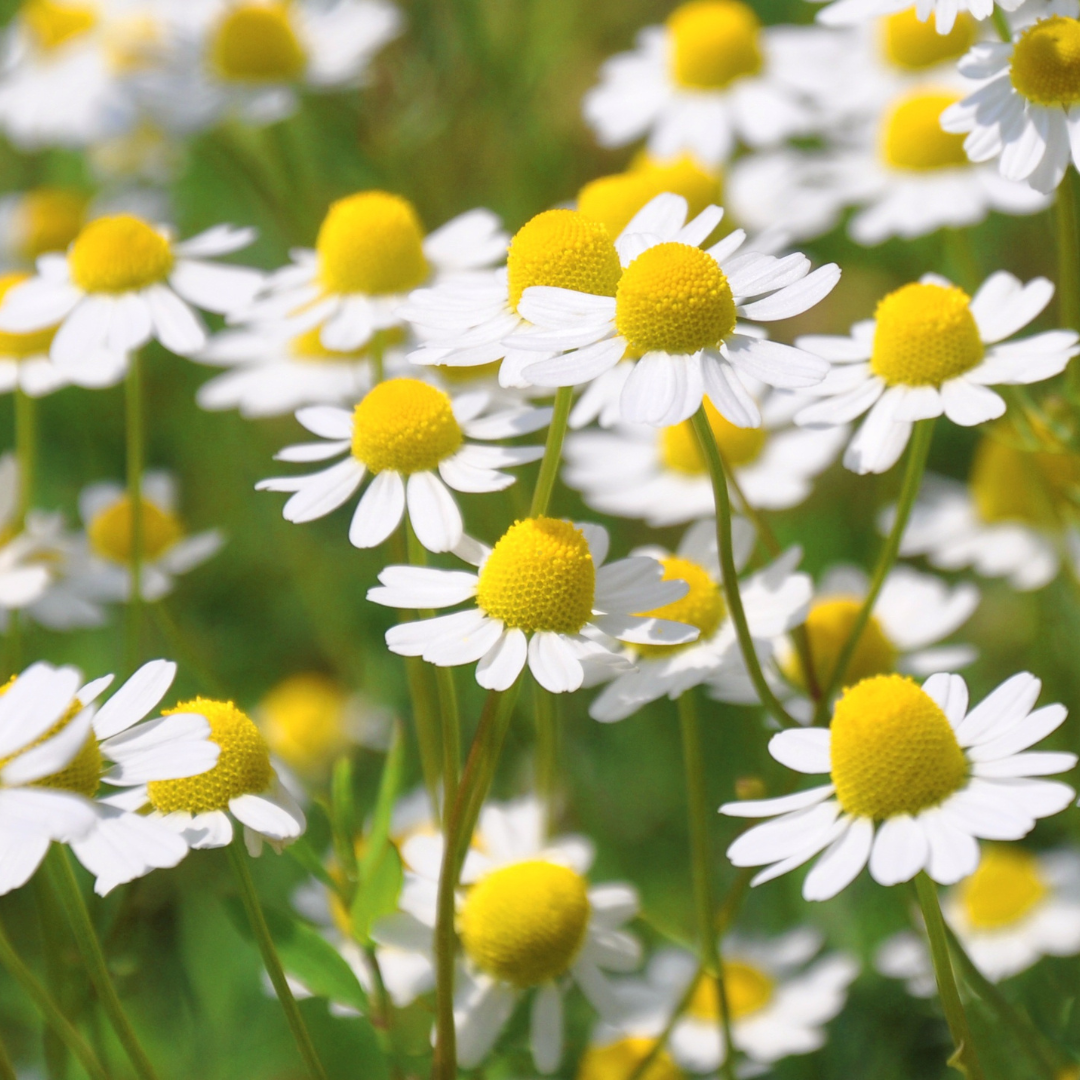
Chamomile (Matricaria chamomilla) is a well-known herbal remedy used to treat sleep disorders and sleep disturbances. This gentle, calming herb is particularly beneficial for those who have trouble sleeping due to anxiety or digestive issues. It is gentle enough for children as well, making it a popular choice among parents. Chamomile contains an antioxidant called apigenin, which binds to certain receptors in the brain, helping to promote relaxation and reduce sleep interruption. Learn more about chamomile in this post.
-
How to Use Chamomile: The easiest way to incorporate chamomile into your sleep routine is by drinking a warm cup of chamomile tea about 30 minutes before bed. Chamomile can also be blended with other herbs, such as lemon balm or lavender, for enhanced relaxation. The flavor of chamomile is light and has a slight appley flavor. It is very pleasant on its own, but also pairs well with every herb in this post.
-
Lifestyle Tip: Pair your chamomile tea with a relaxing bedtime routine, such as a warm bath or gentle stretching exercises, to promote a more restful night.
Lavender: Aromatic and Soothing for Better Sleep
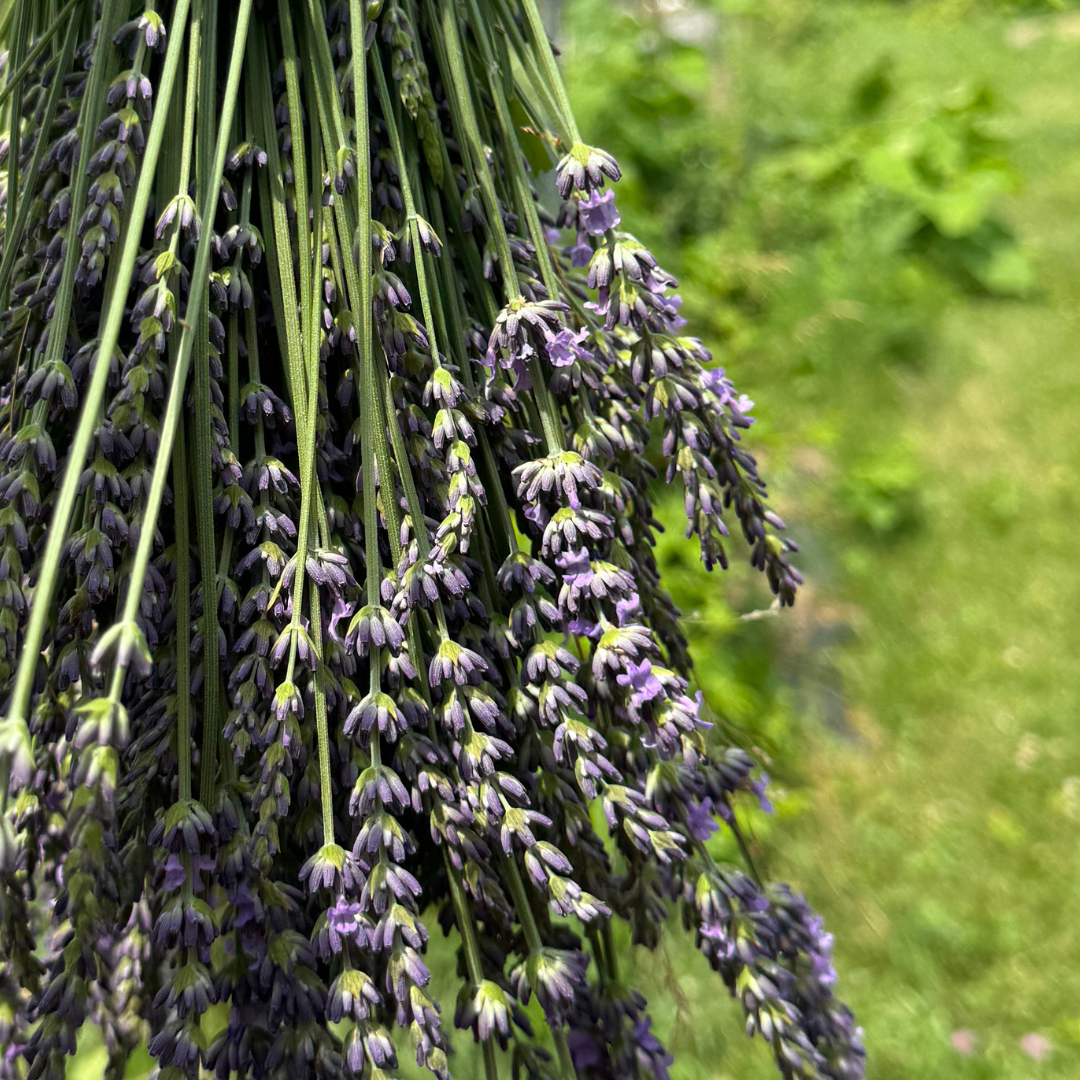
Lavender (Lavandula angustifolia) is another herbal powerhouse when it comes to improving sleep quality. Known for its calming effect and ability to reduce sleep disturbances, lavender has been studied extensively for its role in promoting deep sleep. Its essential oils can be inhaled or applied topically to create a relaxing experience.
-
How to Use Lavender: Drink a cup of lavender tea 30 minutes before bed to experience its calming effects. You can also try adding 10 drops of lavender essential oil to a diffuser or applying the oil to your pillow for its calming aroma that will help you relax.
-
MOM HACK: For restless kids, fill a sock with dried lavender and place it in their pillow case on the seam side.
-
Best Results: Combine the use of lavender essential oils with a cool, dark, and quiet room to optimize your sleep environment.
Ashwagandha: The Adaptogen for Stress and Sleep
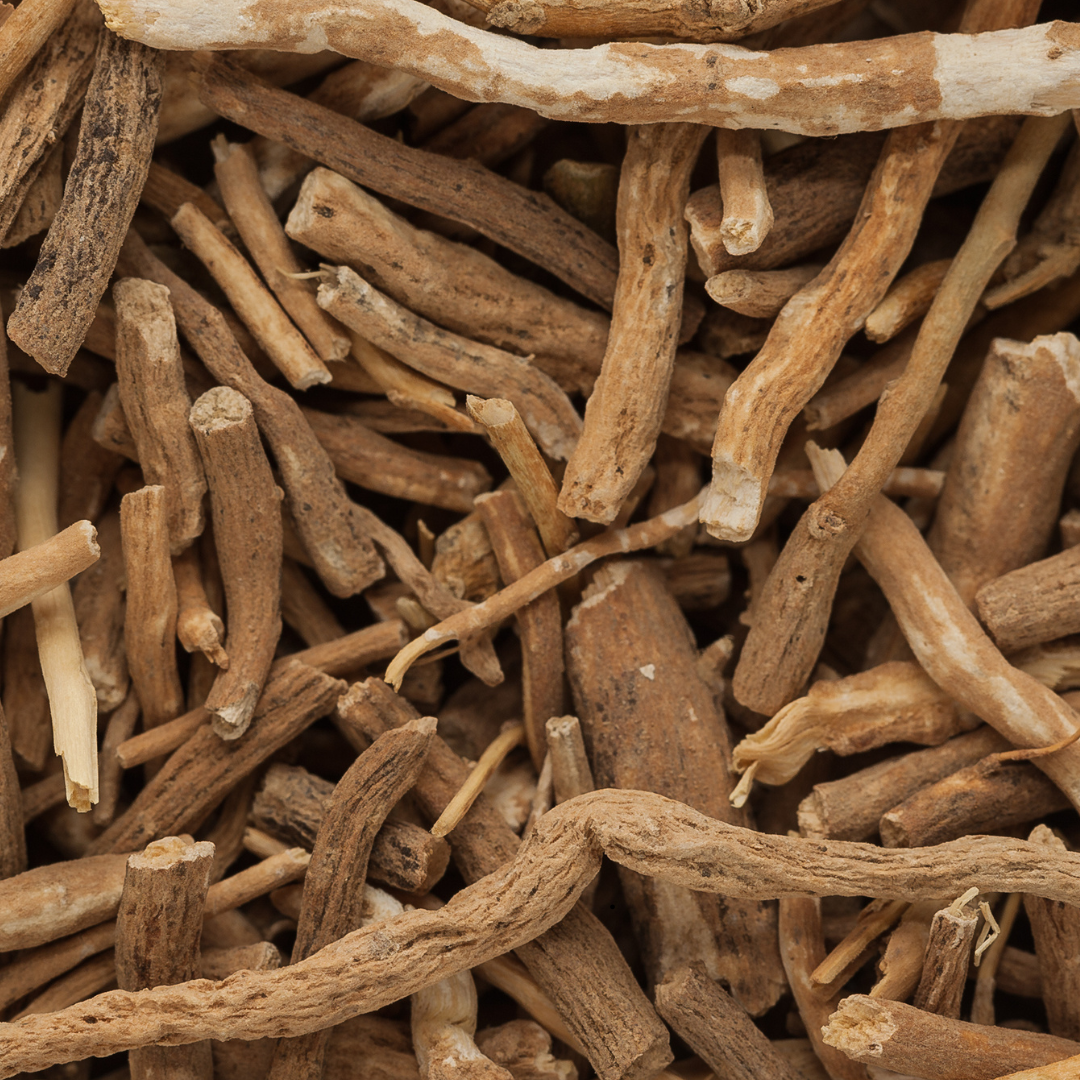
Ashwagandha (Withania somnifera) is an adaptogenic herb that helps the body manage stress, which is a key factor in achieving better sleep. It helps lower cortisol levels, the stress hormone that can keep you awake at night. By calming the body’s response to stress, ashwagandha helps to calm the mind and body, promoting restful sleep and helping regulate the circadian rhythm.
- How to Use Ashwagandha: This herb can be taken in capsule form, tincture form or tea. It can also be found in gummy form, though be sure you are getting a high quality product if you choose that route. It is best taken in the evening to help calm the body and mind in preparation for sleep.
- For Best Results: It is best taken at night, not just for its sleep aid potential, but for its help with boosting testosterone in men, and helping with anxiety and stress.
California Poppy: Natural Relaxation
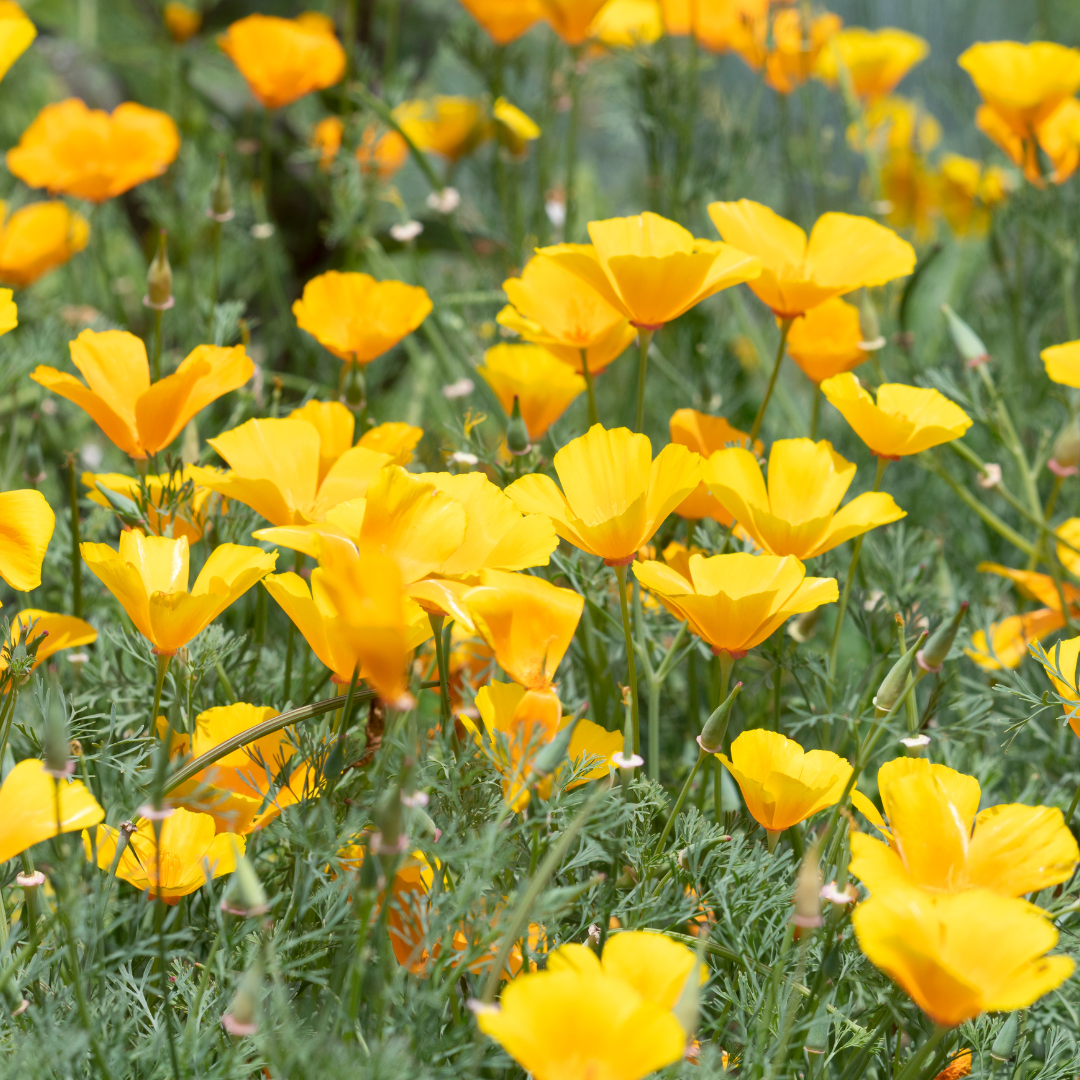
California poppy (Eschscholzia californica) is not as popular of an herb, but a highly effective one for promoting deep sleep. It works by calming the nervous system and reducing anxiety, making it especially helpful for those who have frequent sleep interruptions due to restlessness.
- How to Use California Poppy: You can take California poppy as a tincture or in capsule form. It can also be blended with other calming herbs like valerian root or lemon balm in an herbal tea for enhanced effects.
Hops: The Beer Ingredient for Better Sleep
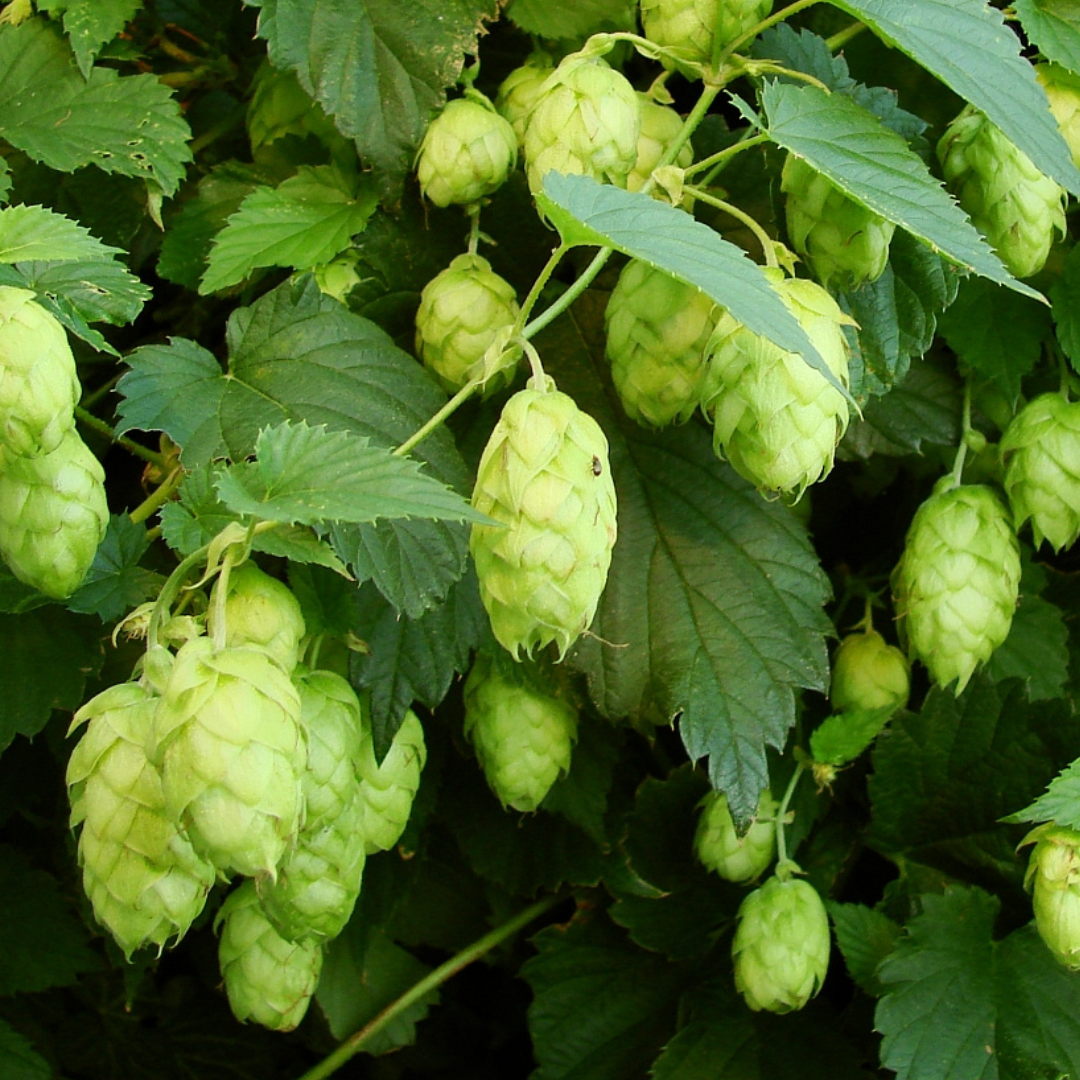
Hops (Humulus lupulus) is most commonly known as an ingredient in beer, but it’s also a powerful herbal remedy for promoting restful sleep. Hops are known for their calming effect on the nervous system and their ability to reduce sleep disturbances.
- How to Use Hops: It is best consumed in tea form. You can also make sleep pillow sachets. Fill them with dried hops and lavender flowers, which release their calming aromas, helping you sleep.
- Contraindications: This herb contains phytoestrogens and can increase estrogen levels in some people. If you have an estrogen-fed cancer or other medical condition that is negatively affected by estrogen, you should avoid using hops.
Passionflower: Calming the Mind for Sleep
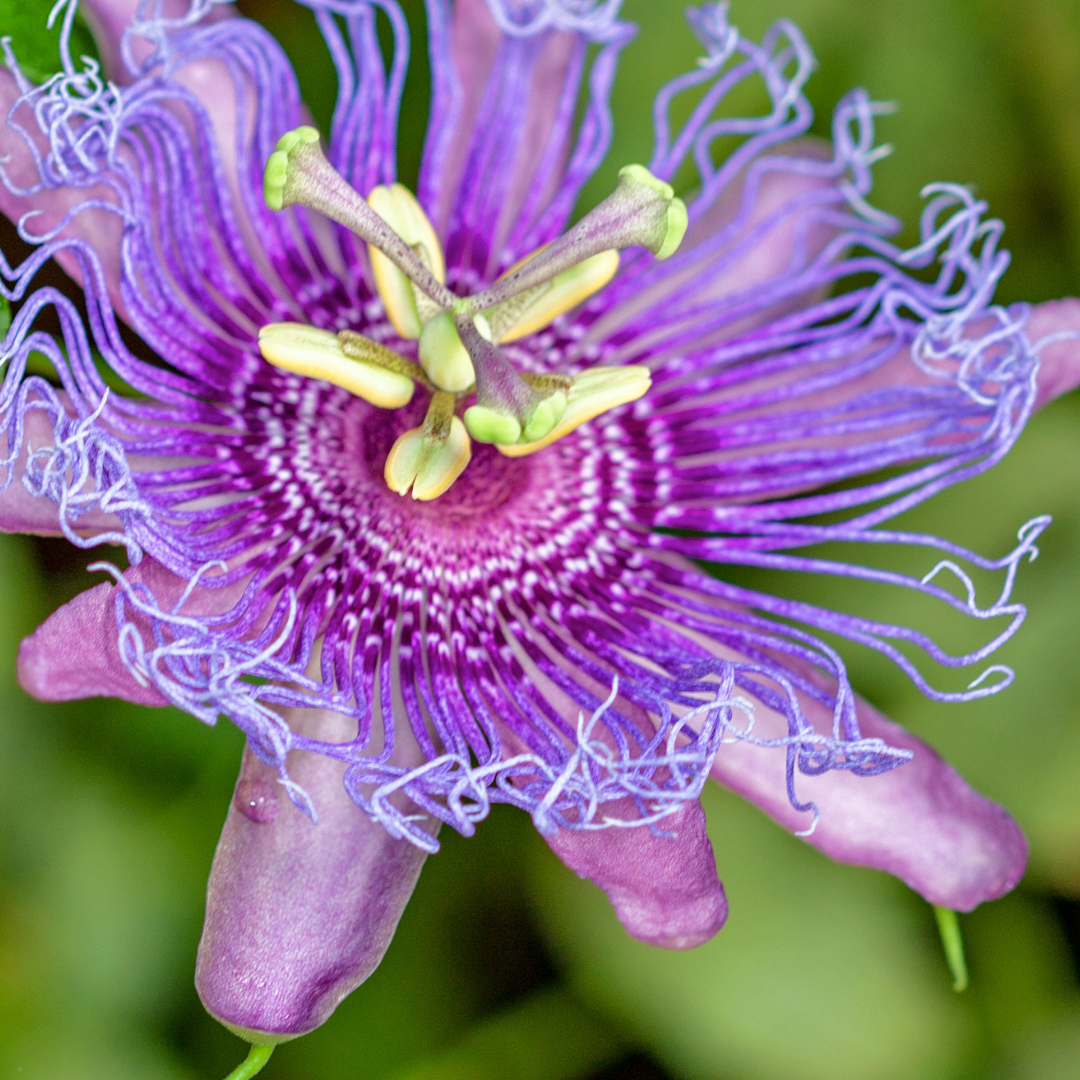
Passionflower (Passiflora incarnata) is an herb traditionally used to calm the mind and reduce anxiety, making it perfect for people dealing with sleep disturbances due to overthinking or stress. Passionflower has been shown to increase levels of GABA in the brain, which helps regulate mood and promote relaxation.
- How to Use Passionflower: It can be taken as a tea, tincture, or capsule form about 30 minutes before bed. If you make it as a tea, be aware that it has a strong flavor that isn’t the best. It’s best blended with herbs like chamomile, lavender and peppermint to mask the flavor.
Wild Lettuce: The Great Pain Reliever

Wild lettuce (Lactuca virosa), often referred to as “lettuce opium” for its mild sedative and pain-relieving properties, is another powerful herbal remedy for those struggling with sleep disturbances. It has been used traditionally to alleviate pain, making it particularly beneficial for individuals who experience sleep loss due to discomfort or joint pain. This herb contains compounds that are believed to act on the central nervous system, offering a calming effect similar to that of a mild opiate without the risk of addiction or serious side effects.
For those who suffer from conditions like muscle spasms, arthritis, or fibromyalgia that give constant pain and discomfort that frequently interfere with good quality sleep, wild lettuce can ease the pain and tension, helping you transition into deep sleep more easily. It also reduces daytime sleepiness, which can be a common consequence of poor-quality rest.
- How To Use Wild Lettuce: For promoting deep sleep, wild lettuce tincture is typically the preferred method. You can take about 30-60 drops (roughly 1/2 to 1 teaspoon) of wild lettuce tincture before bed to help reduce pain and promote relaxation.
Lifestyle Changes for Optimal Sleep
In addition to these 9 herbs for better sleep, combining them with healthy lifestyle habits is highly important to get the best results. Here are a few tips to help maximize the benefits of these natural sleep aids:
-
Create a consistent sleep schedule: Going to bed and waking up at the same time every day (if you can), helps regulate your body’s circadian rhythm.
-
Avoid blue light: Reduce exposure to blue light from screens at least an hour before bed. Blue light interferes with melatonin production and can make it harder to fall asleep.
-
Establish a bedtime routine: Incorporate activities like reading, light stretching, or meditation along with your favorite herbal tea to prepare your body for sleep.
The Pineal Gland
The pineal gland is a small, pinecone-shaped gland located deep within the brain that plays a crucial role in regulating the body’s circadian rhythm, which determines our sleep-wake cycle. It produces melatonin, a hormone that helps control sleep patterns and signals the body when it’s time to rest. The pineal gland is also associated with mood regulation and has been linked to spiritual well-being in many traditions. To support the healthy function of the pineal gland, several herbs can be beneficial.
- Ashwagandha: Helps reduce stress and balance hormone production, supporting melatonin regulation.
- Gotu kola: Is believed to enhance brain function and aid in decalcifying the pineal gland.
- Chaga mushroom: Is rich in antioxidants, and can protect the pineal gland from oxidative stress.
- Mugwort: Has been traditionally used to stimulate dream recall and pineal activity.
These herbs can help the pineal gland function at its best, supporting better sleep and overall mental clarity.
Herbal Remedies for a Good Night’s Sleep
If you’re struggling with sleep problems, the power of herbs like valerian root, lemon balm, chamomile, lavender, ashwagandha, California poppy, hops, passionflower, and wild lettuce can help you achieve a good night’s sleep. These natural remedies have fewer side effects than prescription medications and can be just as effective when used consistently in combination with healthy sleep habits.
Herbs can be a wonderful, natural way to promote better sleep without the harsh side effects of pharmaceutical sleep aids. Whether you’re drinking a calming tea, using a tincture, or enjoying the aromatic properties of these herbs, these herbs can help soothe your nervous system and prepare your body for restful sleep.
As with any herbal remedy, it’s important to consult with your healthcare team if you have any preexisting conditions or are taking medications. Everyone’s body reacts differently to herbs, so finding the right herb and dosage for your needs may take a little experimentation.
If you’re looking for a place to purchase these amazing herbs, look at Oshala Farms. I’m a big fan of regenerative herb farms because they truly are the gold star for growing medicinal herbs, and they have a fantastic selection.
Here’s to restful nights and rejuvenating sleep, the natural way!
Don't miss a thing!
New herbal education and recipes delivered to your inbox.
We hate SPAM. We will never sell your information, for any reason.
Recent Posts
